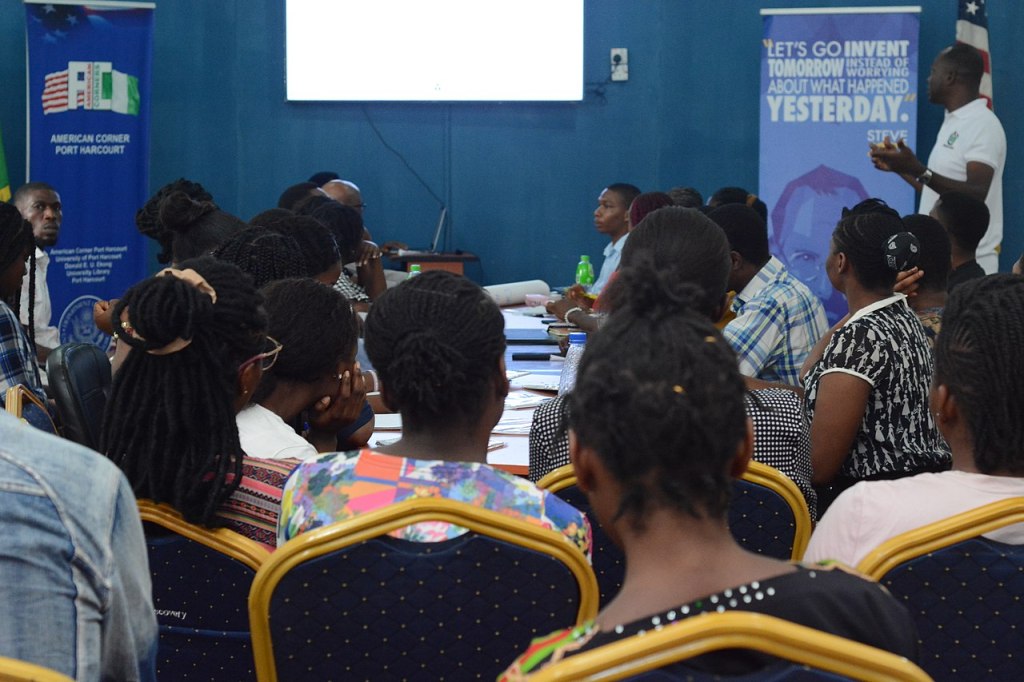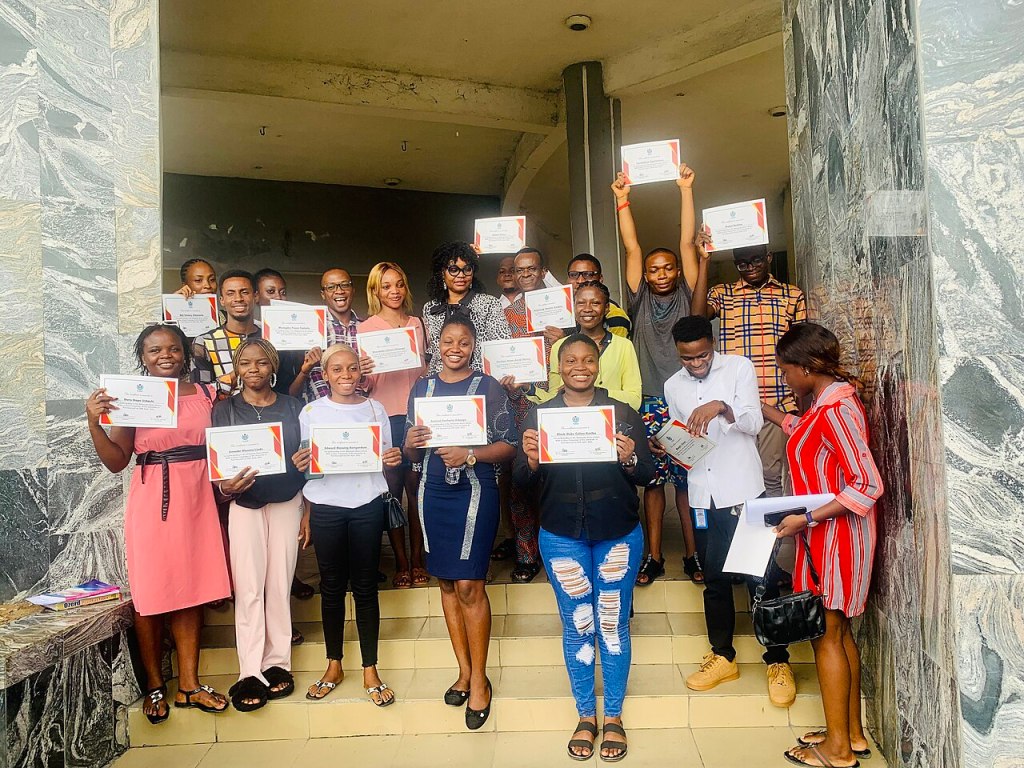The “Writing Rivers History in Wikipedia” project was launched by Ugwulebo and Omorodion1 as a proactive method to fill information gaps in the Wikimedia ecosystem. The initiative aims to improve both the quantity and the calibre of River State (of Nigeria)-related entries on the site, with a focus on solving the content and contributor gaps that are common in Wikipedia. The initiative worked diligently to make these articles better in order to ensure a more complete depiction of Rivers State’s history and culture.
Rivers State, which is one of the Niger Delta states, is located in the southern part of Nigeria. The state is notable for its exceptional linguistic diversity and is home to more than 28 different ethnic groups. The Abua, Andoni, Ekpeye, Bille, Eleme, Kalabari, Okrika, Ogoni, Engenni, Etche, Ibani, Ikwerre, Ogba, Odua, and countless other groups are among these various communities. Each of these ethnic groups adds to the diverse heritage and cultural identity of Rivers State. Nevertheless, despite their significance, there is a notable lack of accurate information about these ethnic groups on Wikipedia.
The project’s main goal was to strengthen the capacities of historians and history students within Rivers State’s academic community. The project’s goal was to provide these individuals with the knowledge and abilities they needed so they could successfully record local knowledge on Wikipedia. In order to fill in the knowledge gaps and improve Wikipedia’s depiction of Rivers State’s history and culture, it was important to focus on giving these historians and students the tools and resources they need to provide insightful information and expertise. The project made a concentrated effort to ensure that the historical occurrences, cultural traditions, and societal contributions of Rivers State were adequately recorded and disseminated on a global scale. The project recognized the value of cultivating regional expertise and encouraging active engagement in the documentation of information by including historians and history students. By doing this, the effort hoped to leave a long-lasting mark that not only filled up the gaps on Wikipedia right away but also encouraged continued collaboration and contribution among Rivers State’s academic community.
Goals
The project aimed to increase the quality of the content of Rivers History by giving participants the expertise they needed. Among these goals were:
Wikipedia Training: One of the key goals is to train the participants on how to properly and actively edit Wikipedia. Training was provided to faculty members and students of the History and Diplomatic Studies Department at University of Port Harcourt in Rivers State. The training included basic Wikipedia editing, addition of citation, and others.
Write-a-thon: Closely monitored write-a-thon where participants created new Rivers related Wikipedia articles and expanded existing underdeveloped Rivers articles were organized.
Edit-a-thons: To increase at least 40 participants editing skill to performing minor edits (adding citations, wikilinks, adding category, infoboxes, and descriptions, among others) on Wikipedia related to Literature topics in the Nigerian context and helping them understand the Wikipedia core content policies, the general editing principles and tools needed to edit properly.
List Building and Development of Project Page: A list of notable (important) Rivers subject to be created on Wikipedia was provided to aid the participants, in addition to providing a list of existing Wikipedia articles that require improvements.
Activities
The Project activities encompassed both online and physical training sessions to cater for a wider audience and facilitate hands-on learning. Here’s a breakdown of the activities that took place:
Online Training: The online onboarding and training session was conducted to teach the participants how to create their Wikipedia accounts, create Wikipedia articles, add Wiki links and citations to articles. The session was recorded for future reference.
Physical Training: Physical training sessions were held to further improve the participants knowledge and their challenges were discussed also.
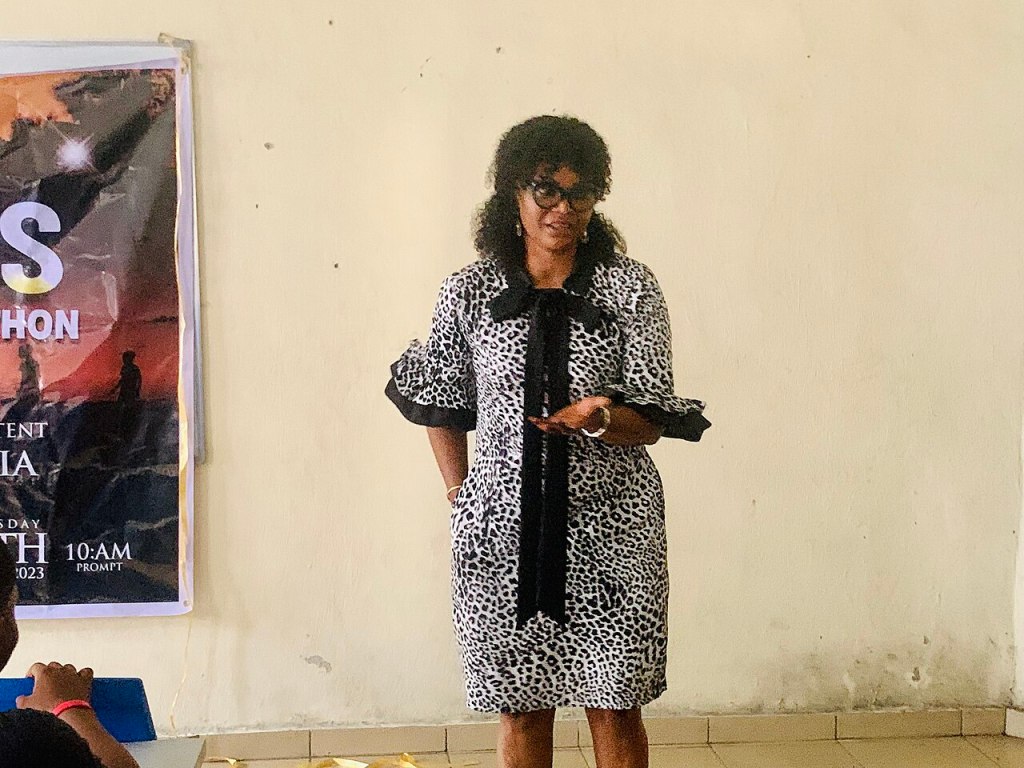
How It Was Achieved
Creating Publicity: create awareness about Wikipedia and its sister projects among the inhabitants of Rivers State and the scholarly community affiliated with the University of Port Harcourt through the use of E-posters on various communication channels to attract interested participants.
Capacity Building: focused on developing skills in Wikipedia editing, fact-checking, and research. By enhancing these skills, the participants were able to contribute to the preservation of endangered information about the Rivers people on Wikipedia.
List of articles: A documentation page was created, containing a comprehensive list of articles to be created or enhanced, which proved beneficial in assisting participants in identifying the content gaps on Wikipedia
Communication and Personalized Support: A dedicated communication channel was established to provide continuous support to participants throughout their editing journey and ensure the effective dissemination of vital information necessary for achieving the project’s objectives.
Objectives
| Number of article views | Minimum number of articles views as a result of this project | 1777000 |
| Number of editors | Editors who participated and edited during the implementation of this project | 59 |
| Total number of articles improved | Over 200 articles were created and improved as a result of this project. The organizers exceeded the target for this metric. | 212 |
Key Outcomes
The project recorded successes in many areas. However some of the key achievements from this project include:
- The project trained historians and history students on Wikipedia editing and fact-checking, which helped to improve the quality of the information in Wikipedia about Rivers State.
- The project was able to recruit 59 editors out of which included 39 new participants
- The project raised awareness of Wikipedia among the people of Rivers State, which encouraged more people to contribute to the platform, thereby helping to address the contributor gap in the community.
- The project helped preserve endangered information about the Rivers people on Wikipedia.
- The project established a dedicated communication channel to provide continuous support to participants throughout their editing journey.
- During the project’s implementation, the participants made a significant impact by generating over 200 edits on Wikipedia. These contributions encompassed various aspects such as adding citations, enhancing articles, incorporating wiki links, and implementing categorization. For more detailed information and a comprehensive overview of the participants’ contributions, we encourage you to explore the outreach dashboard. It provides a detailed breakdown of the edits made, highlighting the transformative impact of the meetup in advancing the cause of indigenous knowledge preservation in Nigeria.
Facilitators
The project was championed by the following experienced Wikimedia Volunteers:
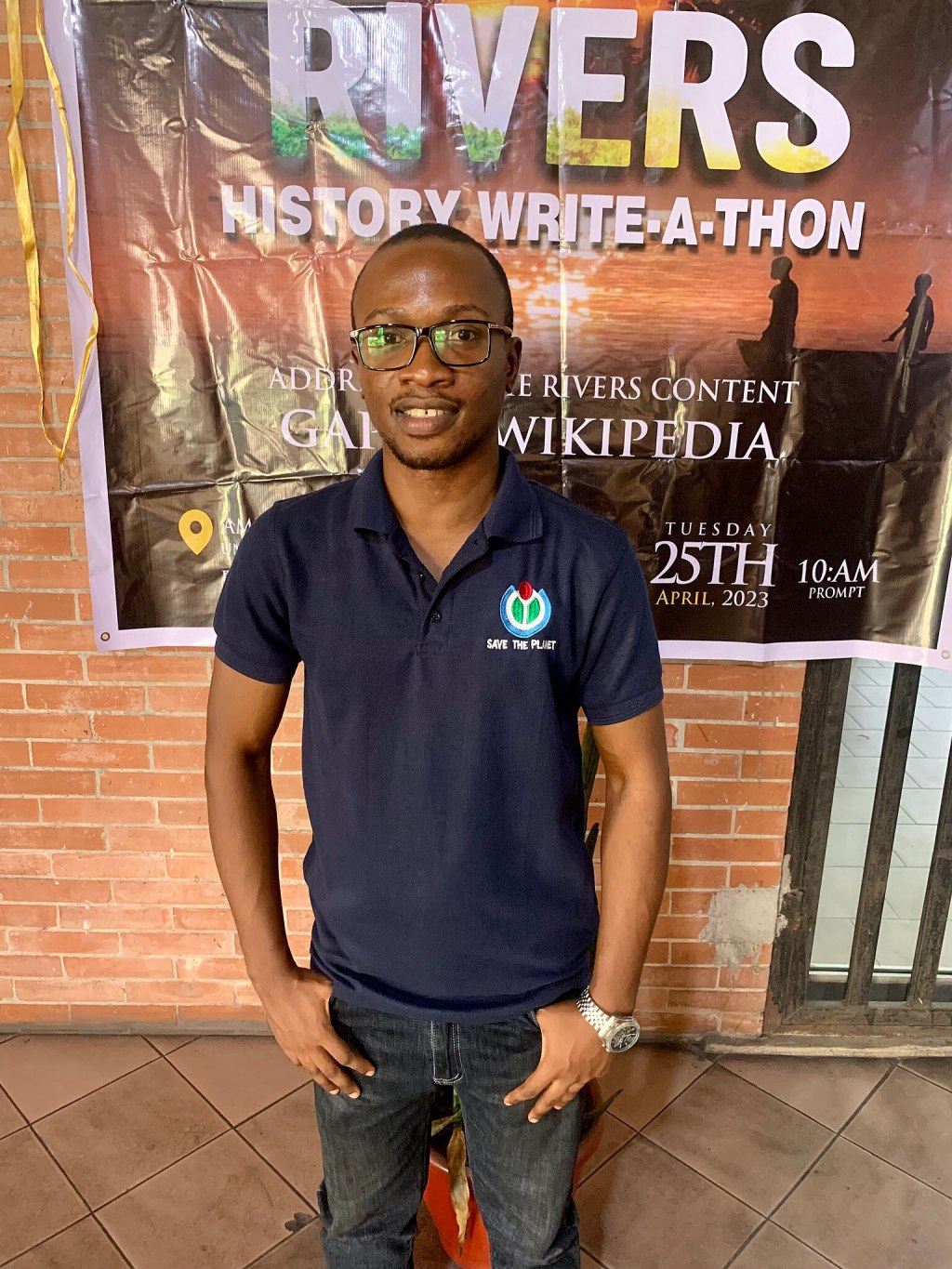
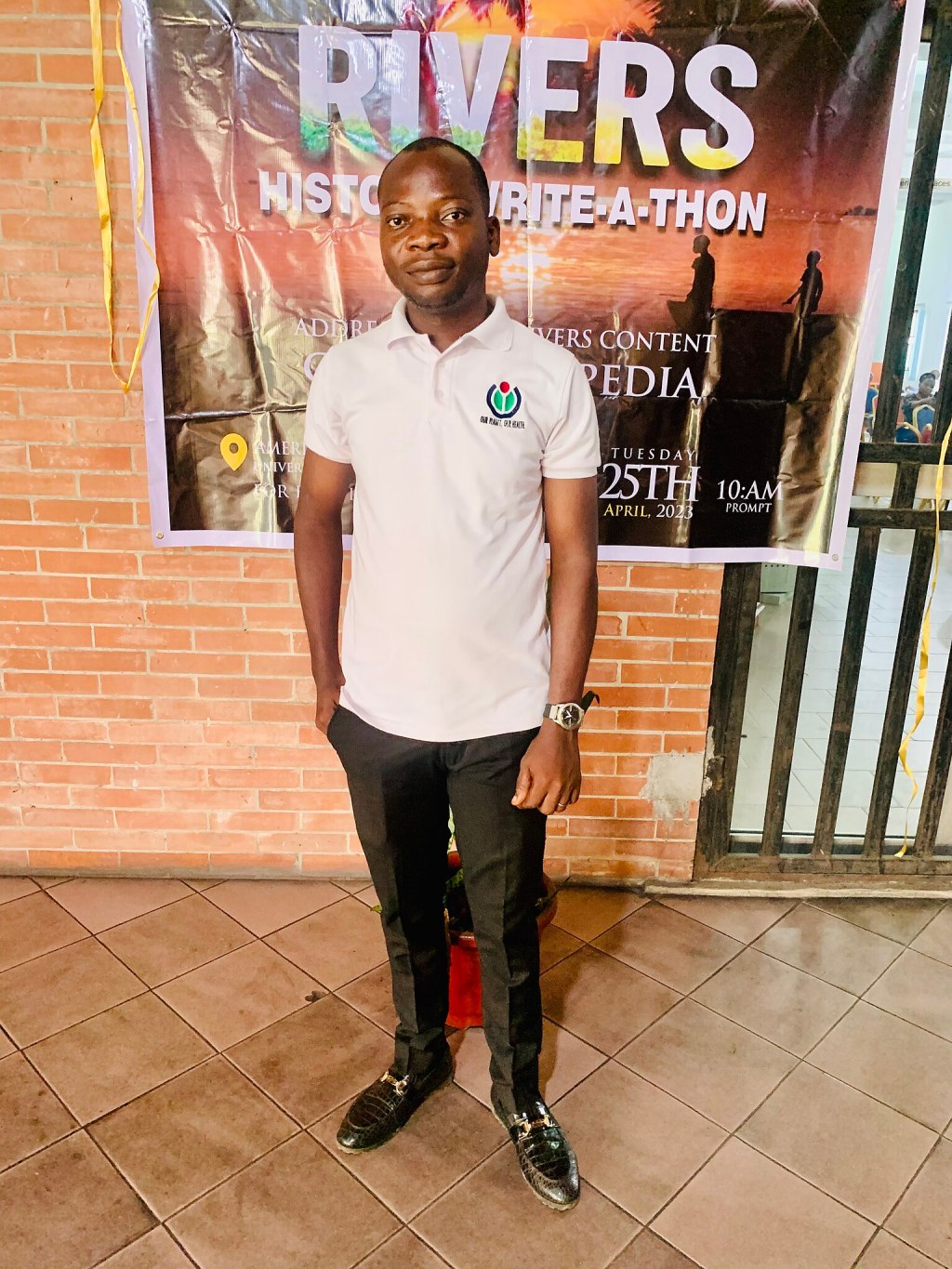
Conclusion
The “Writing Rivers History in Wikipedia” project is a great example of how Wikipedia can be used to make a positive impact in the world. The project’s success shows that Wikipedia can be a valuable tool for preserving and documenting local knowledge, and for raising awareness about important issues. I hope that other “minority” communities will be inspired by this project and start their own initiatives to improve the quality and quantity of information about their own cultures and histories on Wikipedia.

Can you help us translate this article?
In order for this article to reach as many people as possible we would like your help. Can you translate this article to get the message out?
Start translation
